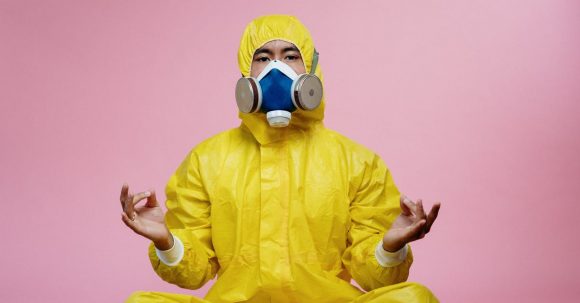
(cottonbro / pexels.com)
After weeks of coronavirus spam in our inboxes, daily (if not hourly) updates on the mounting toll of infections and phone alerts warning us not to leave our homes, would it be crazy to think this pandemic isn’t such a bad thing? It is forcing us to slow down, reconnect with ourselves and ask important questions about who we have become and who we want to be.
You might be wondering: How is that possible? We’ve been forced to a halt. God, Allah, the universe, science, the void of nothingness, whatever you may call it, has pushed a giant red STOP button in the sky and all the clattering commotion of mankind is screeching to a standstill. You just lost your job and you have to pay rent next week, you can’t see your friends, all of your classes are on this glitchy, awkward digital platform and you have to live with the constant worry that your loved ones who fall into the at-risk population may contract COVID-19.
But for the first time in what feels like years—maybe your whole life—you have hours upon hours of uneaten time. You basically have a sprawling buffet of delicious time. What a strange thing. So, you think, does this mean I have to be alone and look at myself, like, really look at myself? Yeah, we all do. And maybe that’s what we need.
We’ve become a society based on efficiency and speed. We are always on the go, constantly moving at a frantic pace. We hardly have time to drag our limp, exhausted bodies through the endless days bestowed upon us. Many of us simply go through the motions of living: We wake up as the sun rises, gulp down some coffee, rush off to work or school, try to focus our tired eyes on daily tasks, come home to heat up leftovers, then drown out the stress of the day in a few episodes of our current Netflix addiction. Is this really living?
“But for the first time in what feels like years—maybe your whole life—you have hours upon hours of uneaten time.”
The COVID-19 pandemic is triggering the start of a global recession and is causing stocks to plummet. Even though we are still in a shell-shocked state, we are discovering benefits such as helping the environment. It turns out what is bad for the economy may be just the opposite for the Earth. As air travel is a leading contributor to climate change, a reduction in it is a breath of fresh air for the planet. In addition, due to quarantine restrictions, people are driving far less, eating out less, just doing less. When we are talking about the climate crisis, doing less is exactly what we need to be doing.
Widespread mass hysteria and fear has motivated more people to get their hands dirty and begin growing their own food. NPR reported that seed stores are being overwhelmed with orders and the number of people interested in online gardening courses is dramatically increasing. Oregon State University is even offering free online gardening courses.
People may be becoming more altruistic. In countries around the world, people are stepping out onto their balconies to applaud health care workers as they get off their shifts. Communities are organizing to support their members through food drives, childcare, grocery drop-offs and restricted hours for the elderly. Italians are making music together from the safety of their socially-distanced balconies to raise spirits.
Companies are being forced to take the mental health of their employers seriously. They are providing more mental health support and offering online mindfulness programs to help employees cope with the anxieties of isolation and coronavirus fears. A number of yoga studios, such as Core Power Yoga, are offering free online classes. In addition, a number of meditation apps are making their services free, such as Headspace.
What it all comes down to is that this is a chance for us to look at ourselves and ask: What are we living for? We are being forced to see what and who is really important in our lives. It might be time to rethink our relationships. A lot of people in our social circles may fall out of our lives, but this is not a bad thing. The people who are reaching out to us now, and those we are reaching out to, are the ones that truly matter. If we don’t like who we live with and where we live, we are being forced to reconsider those choices.
Maybe when this is over, we will change our lives. Maybe when this is over, we will stop spending time with people that do not feed us, stop spending energy on tasks that do not uplift us, stop acting in ways that hurt the planet or hurt the body that carries us. Instead, maybe we will start to breathe a little more, start to sleep a little better, start to love a little deeper, and start to slow our lives down. Maybe—just maybe—this crazy virus will be a grand wake-up call. When it is all said and done, we might come out on the other side as a better version of ourselves.
Contact CU Independent Staff Writer Emily Ladd at emily.ladd@colorado.edu.
